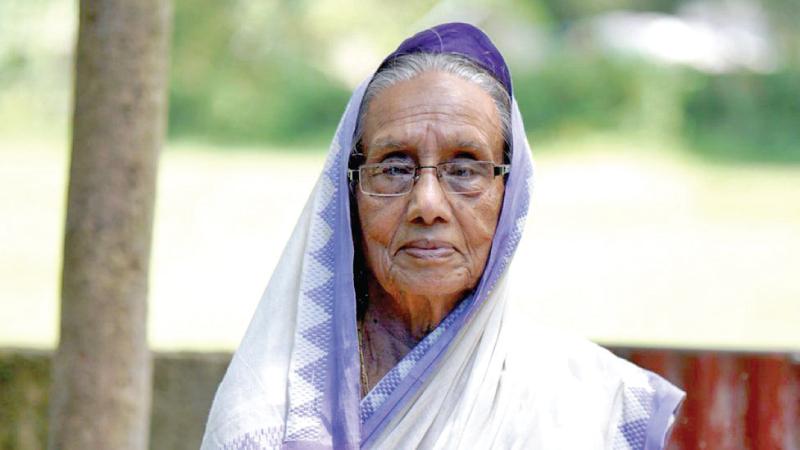
The year was 1953. Nilambur Ayisha, 18, was on stage delivering a dialogue when a bullet whizzed through the air.
“It missed me and hit the stage curtains because I moved while speaking,” recalls Ayisha, now 87, sitting at her home in the town of Nilambur (which became part of her stage name) in the southern Indian state of Kerala.
The shooter’s attempt was just one among several - by religious conservatives who believed a Muslim woman shouldn’t act - to force Ayisha off the stage.
But she went on acting, braving sticks, stones and slaps until, she says, “we managed to change people’s attitudes”.
Last month, Ayisha was in the front row when a new generation of actors in Kerala presented a reimagined version of the play she was doing when she was fired at - Ijju Nalloru Mansanakan Nokku (You try to become a good human being).
The new version opens with the shooting attempt at Ayisha and takes aim at religious conservatism among Muslims, much like the earlier version - except that it incorporates several recent incidents of intolerance and religious dogma, especially those intended to oppress women.
For instance, a few weeks ago, a senior Muslim leader in Kerala kicked up a controversy after scolding the organisers of an event for calling a female student to receive an award on a stage.
Since 2014, when the Hindu nationalist Bharatiya Janata Party swept to power in India, attacks on Muslims - the country’s largest minority at 200 million - have risen sharply.
In turn, the minority community is also going through a political churn where moderate voices are finding it harder to counter what is sometimes an assertion of conservative practices in the name of championing religious identity.
Ayisha says she is worried that the conservatism she and her fellow artistes - many of them Communists - fought against in the 1950s and 60s is deepening in India, including in Kerala, often called one of India’s most progressive states.
“We tried to change these attitudes earlier. But now, when there is objection to a young girl going up on stage, it feels like we are going back to those dreadful days,’’ she says. -BBC
